Full Program
Full Citation in the ACM Digital Library.
Day 1: Monday, June 4, 2018
09:00 Welcome, Refreshments and Registration
09:40 Opening Remarks
10:00 Keynote #1:
How Would You Store a Zettabyte of Cold Data?
Ant Rowstron (Microsoft Research, UK)
[Abstract], [Speaker Bio]
Abstract:
The scale of cloud storage is immense and growing. In this talk I will cover some of the work that the team in Microsoft Research has been doing in creating storage technologies for cooler and cold data in the cloud in the last 8 years. I will talk about our initial efforts to use HDD-based storage, using clean-slate rack-scale design and disaggregation, and talk about the limitations. I will then talk about how this has driven us to a radical rethink of what longer term cold storage should look like, and how we are building a new storage system from the media up based on using glass as the media.
Bio:
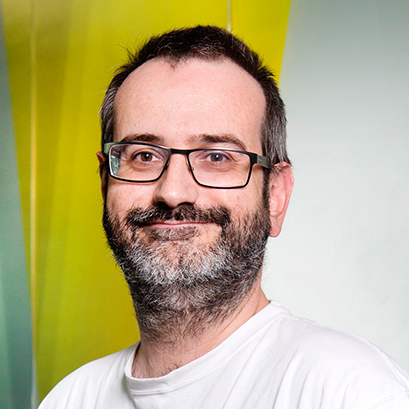 Ant Rowstron is a Principal Researcher and Deputy Lab Director at Microsoft Research in Cambridge, UK. His research interests are broad, covering the spectrum of systems, distributed systems, storage and networking. He has worked on many things in the last two decades, and most recently has been leading a team investigating how to build clean-slate storage technologies, from the media up, for the cloud. Currently, he is learning a lot about how to write and read data in glass! He received an MEng degree in Computer Systems and Software Engineering in 1993 and a DPhil degree in Computer Science in 1997 both from the University of York, UK. After his DPhil studies, he joined Cambridge University in 1996, and then moved in May 1999 to Microsoft Research in the UK, where he has worked since. He was awarded the 2016 ACM SIGOPS Mark Weiser Award.
Ant Rowstron is a Principal Researcher and Deputy Lab Director at Microsoft Research in Cambridge, UK. His research interests are broad, covering the spectrum of systems, distributed systems, storage and networking. He has worked on many things in the last two decades, and most recently has been leading a team investigating how to build clean-slate storage technologies, from the media up, for the cloud. Currently, he is learning a lot about how to write and read data in glass! He received an MEng degree in Computer Systems and Software Engineering in 1993 and a DPhil degree in Computer Science in 1997 both from the University of York, UK. After his DPhil studies, he joined Cambridge University in 1996, and then moved in May 1999 to Microsoft Research in the UK, where he has worked since. He was awarded the 2016 ACM SIGOPS Mark Weiser Award.
11:00 Session 1a: Storage Media
Session Chair: Danny Harnik (IBM Research, Haifa)
Dependable Non-Volatile Memory
Authors: Arthur Martens, Rouven Scholz, Phil Lindow, Niklas Lehnfeld, Marc A. Kastner, Rüdiger Kapitza (TU Braunschweig)
11:30 Coffee Break
11:50 Session 1b: Storage Media
Session Chair: Danny Harnik (IBM Research, Haifa)
REGISTOR: A Platform for Unstructured Data Processing Inside SSD Storage
Authors: Shuyi Pei, Jing Yang, Qing Yang (University of Rhode Island)
Protecting Single Shingled Write Drives Against Latent Sector Failures
Authors: Thomas Schwarz (Marquette University)
Stash in a Flash, USENIX FAST’18 (highlight)
Authors: Aviad Zuck (Technion), Yue Li, Jehoshua Bruck (California Institute of Technology), Donald E. Porter (University of North Carolina at Chapel Hill), Dan Tsafrir (Technion and VMware Research)
Reducing DRAM Footprint with NVM in Facebook, EuroSys’18 (highlight)
Authors: Assaf Eisenman (Stanford University); Darryl Gardner (Facebook), Islam AbdelRahman (Facebook), Jens Axboe (Facebook), Siying Dong (Facebook), Kim Hazelwood (Facebook), Chris Petersen (Facebook); Asaf Cidon (Stanford University), Sachin Katti (Stanford University)
13:30 Lunch Break
14:30 Session 2: Kernels
Session Chair: Mark Silberstein (Technion)
Frightening Small Children and Disconcerting Grown-ups: Concurrency in the Linux Kernel, ASPLOS’18 (highlight)
Authors: Jade Alglave (ARM and University College London); Luc Maranget (Inria — Paris); Paul E. McKenney (IBM Corporation and Oregon State University); Andrea Parri (Scuola Superiore Sant’Anna); Alan Stern (Harvard University)
DAMN: Overhead-Free IOMMU Protection for Networking, ASPLOS’18 (highlight)
Authors: Alex Markuze (Technion & VMware Research); Igor Smolyar (Technion); Adam Morrison (Tel Aviv University); Dan Tsafrir (Technion & VMware Research)
15:20 – 17:00 Poster Session & Reception
Day 2: Tuesday, June 5, 2018
09:30 Keynote #2:
Automatically Scalable Computation
Margo Seltzer (Harvard University)
[Abstract], [Speaker Bio]
Introduction: Erez Zadok (Stony Brook University)
Abstract:
As our computational infrastructure races gracefully forward into increasingly parallel multi-core and clustered systems, our ability to easily produce software that can successfully exploit such systems continues to stumble. For years, we've fantasized about the world in which we'd write simple, sequential programs, add magic sauce, and suddenly have scalable, parallel executions. We're not there. We're not even close. I'll present a radical, potentially crazy approach to automatic scalability, combining learning, prediction, and speculation. To date, we've achieved shockingly good scalability and reasonable speedup in limited domains, but the potential is tantalizingly enormous.
Bio:
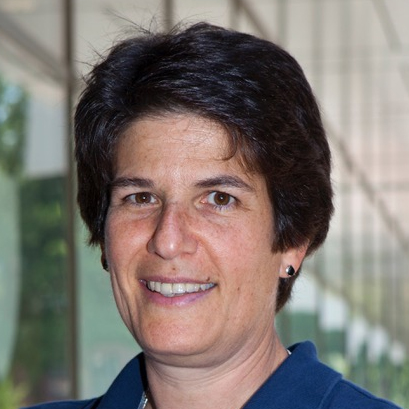 Margo Seltzer is currently the Herchel Smith Professor of Computer Science and
the Faculty Director for the Center for Research on Computation and
Society in Harvard's John A. Paulson School of Engineering and Applied
Sciences. In September 2018, she will assume a Canada 150 Research Chair
and become the Director of the Computer Systems Laboratory at the University of
British Columbia.
Margo Seltzer is currently the Herchel Smith Professor of Computer Science and
the Faculty Director for the Center for Research on Computation and
Society in Harvard's John A. Paulson School of Engineering and Applied
Sciences. In September 2018, she will assume a Canada 150 Research Chair
and become the Director of the Computer Systems Laboratory at the University of
British Columbia.
Her research interests are in systems, construed quite broadly:
systems for capturing and accessing provenance, file systems, databases,
transaction processing systems, storage and analysis of graph-structured
data, new architectures for parallelizing execution, and systems that
apply technology to problems in healthcare and the judicial system.
Dr. Seltzer was a founder and CTO of Sleepycat Software, the
makers of Berkeley DB, and is also an Architect at Oracle Corporation. She is
a past President of the USENIX Association, a Sloan Foundation Fellow in Computer
Science, and an ACM Fellow. She is recognized as an outstanding teacher and
mentor, having received the Phi Beta Kappa teaching award in 1996,
the Abrahmson Teaching Award in 1999, and the Capers and Marion McDonald
Award for Excellence in Mentoring and Advising in 2010.
10:30 Session 3: Runtime Analysis
Session Chair: Antonio Barbalace (Huawei German Research Center)
 Lerna: Parallelizing Dependent Loops Using Speculation [Best Paper]
Lerna: Parallelizing Dependent Loops Using Speculation [Best Paper]
Authors: Mohamed M. Saad (Alexandria University); Roberto Palmieri (Lehigh University); Binoy Ravindran (Virginia Tech)
Chaperone - Runtime System for Instrumenting Applications via Partial Binary Translation
Authors: Gadi Haber, Coby Tayree (Intel Haifa)
11:25 Coffee Break
11:55 Session 4: Infrastructure
Adam Morrison (Tel Aviv University)
DLIRS: Improving Low Inter-Reference Recency Set Cache Replacement Policy with Dynamics (short)
Author: Cong Li (Intel Corporation)
The Quick Migration of File Servers
Authors: Keiichi Matsuzawa, Mitsuo Hayasaka (Hitachi, Ltd.); Takahiro Shinagawa (The University of Tokyo)
CloudKit: Structured Storage for Mobile Applications, VLDB’18 (highlight)
Authors: Alexander Shraer, Alexandre Aybes, Bryan Davis, Christos Chrysafis, Dave Browning, Eric Krugler, Eric Stone, Harrison Chandler, Jacob Farkas John Quinn, Jonathan Ruben, Michael Ford, Mike McMahon, Nathan Williams, Nicolas Favre-Felix, Nihar Sharma, Ori Herrnstadt Paul Seligman, Raghav Pisolkar, Scott Dugas, Scott Gray, Shirley Lu, Sytze Harkema, Valentin Kravtsov, Vanessa Hong, Wan Ling Yih, Yizuo Tian (Apple)
13:10 Lunch Break
14:00 Social Event: Haifa: the beautiful human mosaic
Day 3: Wednesday, June 6, 2018
09:30 Keynote #3:
How to Build an Insecure System out of Perfectly Good Cryptography
Radia Perlman (Dell EMC)
[Abstract], [Speaker Bio]
Introduction: Liuba Shrira (Brandeis University)
Abstract:
Cryptographers focus on provable cryptographic primitives. Standards bodies focus on syntax of messages. But there are many system issues that get ignored, leading to interesting security problems. Examples include trust models for PKI, misuse of web cookies, name issues, and placing unreasonable demands on users.
Bio:
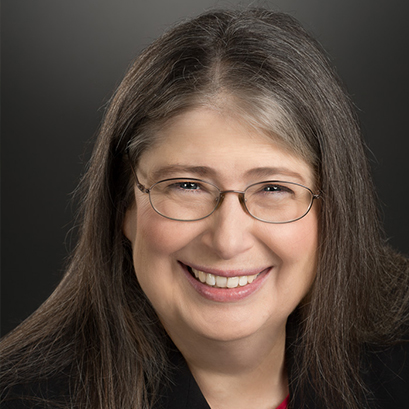 Radia Perlman is a Fellow at Dell EMC. Her specialties include network routing protocols, and network security. She developed the technology for making network routing self-stabilizing, largely self-managing, and scalable. She also invented the spanning tree algorithm, which transformed Ethernet from a technology that supported a few hundred nodes within a single building, to something that could support large networks. She also has made contributions in network security, including scalable data expiration, distributed algorithms despite malicious participants, DDOS prevention techniques, and user authentication. She is the author of the textbook “Interconnections” (about network layers 2 and 3) and coauthor of “Network Security” (applied cryptography). She has been recognized with many industry honors including induction into the National Academy of Engineering, the Inventor Hall of Fame, and lifetime achievement awards from Usenix and SIGCOMM. She has a PhD in computer science from MIT.
Radia Perlman is a Fellow at Dell EMC. Her specialties include network routing protocols, and network security. She developed the technology for making network routing self-stabilizing, largely self-managing, and scalable. She also invented the spanning tree algorithm, which transformed Ethernet from a technology that supported a few hundred nodes within a single building, to something that could support large networks. She also has made contributions in network security, including scalable data expiration, distributed algorithms despite malicious participants, DDOS prevention techniques, and user authentication. She is the author of the textbook “Interconnections” (about network layers 2 and 3) and coauthor of “Network Security” (applied cryptography). She has been recognized with many industry honors including induction into the National Academy of Engineering, the Inventor Hall of Fame, and lifetime achievement awards from Usenix and SIGCOMM. She has a PhD in computer science from MIT.
10:30 Session 5: Confidentiality
Session Chair: Aviad Zuck (Technion)
How to Best Share a Big Secret
Authors: Roman Shor, Gala Yadgar (Technion); Wentao Huang (Snap Inc.); Eitan Yaakobi (Technion); Jehoshua Bruck (California Institute of Technology)
Inkpack: A Secure, Data-Exposure Resistant Storage System
Authors: Oceane Bel, Kenneth Chang, Daniel Bittman, Ethan L. Miller, Darrell D. E. Long (UC Santa Cruz); Hiroshi Isozaki (Toshiba Memory Corp.)
11:25 Coffee Break
11:55 Session 6: Networks
Session Chair: Anna Levin (IBM Research, Haifa)
Seamless Fail-over for PCIe Switched Networks
Authors: William Cheng-Chun Tu (VMware Inc.); Tzi-cker Chiueh (Industrial Technology Research Institute)
Randomized Admission Policy for Efficient Top-k and Frequency Estimation, INFOCOM’17 (highlight)
Authors: Ran Ben Basat (Technion); Gil Einziger (Nokia Bell Labs); Roy Friedman, Yaron Kassner (Technion)
SGXBounds: Memory Safety for Shielded Execution, EuroSys '17 (highlight)
Authors: Dmitrii Kuvaiskii (TU Dresden), Oleksii Oleksenko (TU Dresden), Sergei Arnautov (TU Dresden), Bohdan Trach (TU Dresden), Pramod Bhatotia (University of Edinburgh), Pascal Felber (University of Neuchâtel), Christof Fetzer (TU Dresden)
13:10 Closing Remarks
13:25 Lunch
14:30 – 16:00
Creating a work Culture that Fosters Creativity, Collaboration and Critical Thinking
A meetup co-located with SYSTOR featuring distinguished speakers Radia Perlman (Dell EMC), Margo Seltzer (Harvard University), Tova Milo (Tel-Aviv University), and Aya Soffer (IBM Research) along with additional Israeli panelists from industry and academia. How can we create a nourishing and truly collaborative work environment where both men and women can thrive? The meetup is open for everyone who is interested in this topic and can contribute to the discussion.
Bio:
 Radia Perlman is a Fellow at Dell EMC. Her specialties include network routing protocols, and network security. She developed the technology for making network routing self-stabilizing, largely self-managing, and scalable. She also invented the spanning tree algorithm, which transformed Ethernet from a technology that supported a few hundred nodes within a single building, to something that could support large networks. She also has made contributions in network security, including scalable data expiration, distributed algorithms despite malicious participants, DDOS prevention techniques, and user authentication. She is the author of the textbook “Interconnections” (about network layers 2 and 3) and coauthor of “Network Security” (applied cryptography). She has been recognized with many industry honors including induction into the National Academy of Engineering, the Inventor Hall of Fame, and lifetime achievement awards from Usenix and SIGCOMM. She has a PhD in computer science from MIT.
Radia Perlman is a Fellow at Dell EMC. Her specialties include network routing protocols, and network security. She developed the technology for making network routing self-stabilizing, largely self-managing, and scalable. She also invented the spanning tree algorithm, which transformed Ethernet from a technology that supported a few hundred nodes within a single building, to something that could support large networks. She also has made contributions in network security, including scalable data expiration, distributed algorithms despite malicious participants, DDOS prevention techniques, and user authentication. She is the author of the textbook “Interconnections” (about network layers 2 and 3) and coauthor of “Network Security” (applied cryptography). She has been recognized with many industry honors including induction into the National Academy of Engineering, the Inventor Hall of Fame, and lifetime achievement awards from Usenix and SIGCOMM. She has a PhD in computer science from MIT.
Bio:
 Margo Seltzer is currently the Herchel Smith Professor of Computer Science and
the Faculty Director for the Center for Research on Computation and
Society in Harvard's John A. Paulson School of Engineering and Applied
Sciences. In September 2018, she will assume a Canada 150 Research Chair
and become the Director of the Computer Systems Laboratory at the University of
British Columbia.
Margo Seltzer is currently the Herchel Smith Professor of Computer Science and
the Faculty Director for the Center for Research on Computation and
Society in Harvard's John A. Paulson School of Engineering and Applied
Sciences. In September 2018, she will assume a Canada 150 Research Chair
and become the Director of the Computer Systems Laboratory at the University of
British Columbia.
Her research interests are in systems, construed quite broadly:
systems for capturing and accessing provenance, file systems, databases,
transaction processing systems, storage and analysis of graph-structured
data, new architectures for parallelizing execution, and systems that
apply technology to problems in healthcare and the judicial system.
Dr. Seltzer was a founder and CTO of Sleepycat Software, the
makers of Berkeley DB, and is also an Architect at Oracle Corporation. She is
a past President of the USENIX Association, a Sloan Foundation Fellow in Computer
Science, and an ACM Fellow. She is recognized as an outstanding teacher and
mentor, having received the Phi Beta Kappa teaching award in 1996,
the Abrahmson Teaching Award in 1999, and the Capers and Marion McDonald
Award for Excellence in Mentoring and Advising in 2010.
Bio:
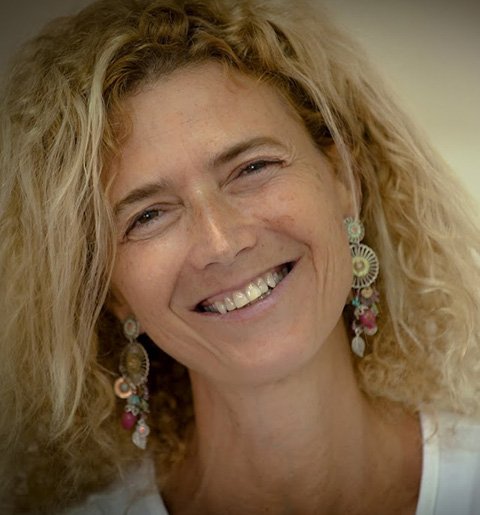 Tova Milo received her Ph.D. degree in Computer Science from the
Hebrew University, Jerusalem, in 1992. After graduating she worked
at the INRIA research institute in Paris and at University of Toronto
and returned to Israel in 1995, joining the School of Computer Science
at Tel Aviv university, where she is now a full Professor and holds the
Chair of Information Management. She served as the Head of the
Computer Science Department from 2011-2014. Her research focuses on
large-scale data management applications such as data integration,
semi-structured information, Data-centered Business Processes and
Crowd-sourcing, studying both theoretical and practical aspects.
Tova served as the Program Chair of several international
conferences, including PODS, VLDB, ICDT, XSym, and WebDB, and as the
chair of the PODS Executive Committee. She served as a member of the
VLDB Endowment and the PODS and ICDT executive boards and as an
editor of TODS, IEEE Data Eng. Bull, and the Logical Methods in Computer
Science Journal. Tova has received grants from the Israel Science Foundation,
the US-Israel Binational Science Foundation, the Israeli and French
Ministry of Science and the European Union. She is an ACM Fellow, a
member of Academia Europaea, a recipient of the 2010 ACM PODS
Alberto O. Mendelzon Test-of-Time Award, the 2017 VLDB Women in
Database Research award, the 2017 Weizmann award for Exact Sciences
Research, and of the prestigious EU ERC Advanced Investigators grant.
Tova Milo received her Ph.D. degree in Computer Science from the
Hebrew University, Jerusalem, in 1992. After graduating she worked
at the INRIA research institute in Paris and at University of Toronto
and returned to Israel in 1995, joining the School of Computer Science
at Tel Aviv university, where she is now a full Professor and holds the
Chair of Information Management. She served as the Head of the
Computer Science Department from 2011-2014. Her research focuses on
large-scale data management applications such as data integration,
semi-structured information, Data-centered Business Processes and
Crowd-sourcing, studying both theoretical and practical aspects.
Tova served as the Program Chair of several international
conferences, including PODS, VLDB, ICDT, XSym, and WebDB, and as the
chair of the PODS Executive Committee. She served as a member of the
VLDB Endowment and the PODS and ICDT executive boards and as an
editor of TODS, IEEE Data Eng. Bull, and the Logical Methods in Computer
Science Journal. Tova has received grants from the Israel Science Foundation,
the US-Israel Binational Science Foundation, the Israeli and French
Ministry of Science and the European Union. She is an ACM Fellow, a
member of Academia Europaea, a recipient of the 2010 ACM PODS
Alberto O. Mendelzon Test-of-Time Award, the 2017 VLDB Women in
Database Research award, the 2017 Weizmann award for Exact Sciences
Research, and of the prestigious EU ERC Advanced Investigators grant.
Bio:
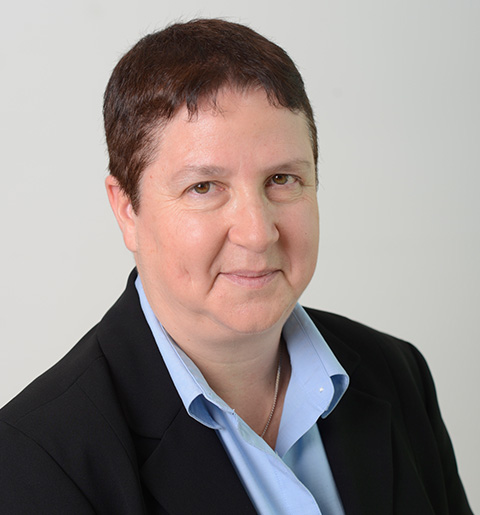 Aya Soffer is Director of AI Tech for the IBM Research AI organization. In this role, she inspires hundreds of IBM scientists around the world and helps shape their ideas into new AI technology that can bring scientific and commercial value. The goal of the AI Tech organization is to develop technologies that will help us reach the point where computers can truly master visual and textual information in all its richness. To accomplish this, we need to advance the state-of-the-art AI capabilities for understanding unstructured data, including image, video, speech, text, and multi-modal data. Going beyond the data, we are teaching computers to extract knowledge from data, apply reasoning, and interact through dialog and natural language queries. In my 19 years at IBM, Dr. Soffer has led several strategic initiatives that grew into successful IBM products and solutions. She has authored over 50 papers, served in numerous conference organization roles, and delivered a TED talk at the TEDMED event in Jerusalem.
Aya Soffer is Director of AI Tech for the IBM Research AI organization. In this role, she inspires hundreds of IBM scientists around the world and helps shape their ideas into new AI technology that can bring scientific and commercial value. The goal of the AI Tech organization is to develop technologies that will help us reach the point where computers can truly master visual and textual information in all its richness. To accomplish this, we need to advance the state-of-the-art AI capabilities for understanding unstructured data, including image, video, speech, text, and multi-modal data. Going beyond the data, we are teaching computers to extract knowledge from data, apply reasoning, and interact through dialog and natural language queries. In my 19 years at IBM, Dr. Soffer has led several strategic initiatives that grew into successful IBM products and solutions. She has authored over 50 papers, served in numerous conference organization roles, and delivered a TED talk at the TEDMED event in Jerusalem.



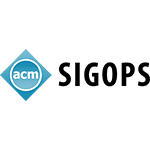
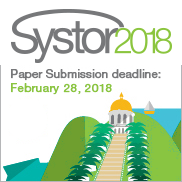
 Ant Rowstron is a Principal Researcher and Deputy Lab Director at Microsoft Research in Cambridge, UK. His research interests are broad, covering the spectrum of systems, distributed systems, storage and networking. He has worked on many things in the last two decades, and most recently has been leading a team investigating how to build clean-slate storage technologies, from the media up, for the cloud. Currently, he is learning a lot about how to write and read data in glass! He received an MEng degree in Computer Systems and Software Engineering in 1993 and a DPhil degree in Computer Science in 1997 both from the University of York, UK. After his DPhil studies, he joined Cambridge University in 1996, and then moved in May 1999 to Microsoft Research in the UK, where he has worked since. He was awarded the 2016
Ant Rowstron is a Principal Researcher and Deputy Lab Director at Microsoft Research in Cambridge, UK. His research interests are broad, covering the spectrum of systems, distributed systems, storage and networking. He has worked on many things in the last two decades, and most recently has been leading a team investigating how to build clean-slate storage technologies, from the media up, for the cloud. Currently, he is learning a lot about how to write and read data in glass! He received an MEng degree in Computer Systems and Software Engineering in 1993 and a DPhil degree in Computer Science in 1997 both from the University of York, UK. After his DPhil studies, he joined Cambridge University in 1996, and then moved in May 1999 to Microsoft Research in the UK, where he has worked since. He was awarded the 2016  Margo Seltzer is currently the Herchel Smith Professor of Computer Science and
the Faculty Director for the Center for Research on Computation and
Society in Harvard's John A. Paulson School of Engineering and Applied
Sciences. In September 2018, she will assume a Canada 150 Research Chair
and become the Director of the Computer Systems Laboratory at the University of
British Columbia.
Margo Seltzer is currently the Herchel Smith Professor of Computer Science and
the Faculty Director for the Center for Research on Computation and
Society in Harvard's John A. Paulson School of Engineering and Applied
Sciences. In September 2018, she will assume a Canada 150 Research Chair
and become the Director of the Computer Systems Laboratory at the University of
British Columbia.
 Radia Perlman is a Fellow at Dell EMC. Her specialties include network routing protocols, and network security. She developed the technology for making network routing self-stabilizing, largely self-managing, and scalable. She also invented the spanning tree algorithm, which transformed Ethernet from a technology that supported a few hundred nodes within a single building, to something that could support large networks. She also has made contributions in network security, including scalable data expiration, distributed algorithms despite malicious participants, DDOS prevention techniques, and user authentication. She is the author of the textbook “Interconnections” (about network layers 2 and 3) and coauthor of “Network Security” (applied cryptography). She has been recognized with many industry honors including induction into the National Academy of Engineering, the Inventor Hall of Fame, and lifetime achievement awards from Usenix and SIGCOMM. She has a PhD in computer science from MIT.
Radia Perlman is a Fellow at Dell EMC. Her specialties include network routing protocols, and network security. She developed the technology for making network routing self-stabilizing, largely self-managing, and scalable. She also invented the spanning tree algorithm, which transformed Ethernet from a technology that supported a few hundred nodes within a single building, to something that could support large networks. She also has made contributions in network security, including scalable data expiration, distributed algorithms despite malicious participants, DDOS prevention techniques, and user authentication. She is the author of the textbook “Interconnections” (about network layers 2 and 3) and coauthor of “Network Security” (applied cryptography). She has been recognized with many industry honors including induction into the National Academy of Engineering, the Inventor Hall of Fame, and lifetime achievement awards from Usenix and SIGCOMM. She has a PhD in computer science from MIT. Tova Milo received her Ph.D. degree in Computer Science from the
Hebrew University, Jerusalem, in 1992. After graduating she worked
at the INRIA research institute in Paris and at University of Toronto
and returned to Israel in 1995, joining the School of Computer Science
at Tel Aviv university, where she is now a full Professor and holds the
Chair of Information Management. She served as the Head of the
Computer Science Department from 2011-2014. Her research focuses on
large-scale data management applications such as data integration,
semi-structured information, Data-centered Business Processes and
Crowd-sourcing, studying both theoretical and practical aspects.
Tova served as the Program Chair of several international
conferences, including PODS, VLDB, ICDT, XSym, and WebDB, and as the
chair of the PODS Executive Committee. She served as a member of the
VLDB Endowment and the PODS and ICDT executive boards and as an
editor of TODS, IEEE Data Eng. Bull, and the Logical Methods in Computer
Science Journal. Tova has received grants from the Israel Science Foundation,
the US-Israel Binational Science Foundation, the Israeli and French
Ministry of Science and the European Union. She is an ACM Fellow, a
member of Academia Europaea, a recipient of the 2010 ACM PODS
Alberto O. Mendelzon Test-of-Time Award, the 2017 VLDB Women in
Database Research award, the 2017 Weizmann award for Exact Sciences
Research, and of the prestigious EU ERC Advanced Investigators grant.
Tova Milo received her Ph.D. degree in Computer Science from the
Hebrew University, Jerusalem, in 1992. After graduating she worked
at the INRIA research institute in Paris and at University of Toronto
and returned to Israel in 1995, joining the School of Computer Science
at Tel Aviv university, where she is now a full Professor and holds the
Chair of Information Management. She served as the Head of the
Computer Science Department from 2011-2014. Her research focuses on
large-scale data management applications such as data integration,
semi-structured information, Data-centered Business Processes and
Crowd-sourcing, studying both theoretical and practical aspects.
Tova served as the Program Chair of several international
conferences, including PODS, VLDB, ICDT, XSym, and WebDB, and as the
chair of the PODS Executive Committee. She served as a member of the
VLDB Endowment and the PODS and ICDT executive boards and as an
editor of TODS, IEEE Data Eng. Bull, and the Logical Methods in Computer
Science Journal. Tova has received grants from the Israel Science Foundation,
the US-Israel Binational Science Foundation, the Israeli and French
Ministry of Science and the European Union. She is an ACM Fellow, a
member of Academia Europaea, a recipient of the 2010 ACM PODS
Alberto O. Mendelzon Test-of-Time Award, the 2017 VLDB Women in
Database Research award, the 2017 Weizmann award for Exact Sciences
Research, and of the prestigious EU ERC Advanced Investigators grant.
 Aya Soffer is Director of AI Tech for the IBM Research AI organization. In this role, she inspires hundreds of IBM scientists around the world and helps shape their ideas into new AI technology that can bring scientific and commercial value. The goal of the AI Tech organization is to develop technologies that will help us reach the point where computers can truly master visual and textual information in all its richness. To accomplish this, we need to advance the state-of-the-art AI capabilities for understanding unstructured data, including image, video, speech, text, and multi-modal data. Going beyond the data, we are teaching computers to extract knowledge from data, apply reasoning, and interact through dialog and natural language queries. In my 19 years at IBM, Dr. Soffer has led several strategic initiatives that grew into successful IBM products and solutions. She has authored over 50 papers, served in numerous conference organization roles, and delivered a TED talk at the TEDMED event in Jerusalem.
Aya Soffer is Director of AI Tech for the IBM Research AI organization. In this role, she inspires hundreds of IBM scientists around the world and helps shape their ideas into new AI technology that can bring scientific and commercial value. The goal of the AI Tech organization is to develop technologies that will help us reach the point where computers can truly master visual and textual information in all its richness. To accomplish this, we need to advance the state-of-the-art AI capabilities for understanding unstructured data, including image, video, speech, text, and multi-modal data. Going beyond the data, we are teaching computers to extract knowledge from data, apply reasoning, and interact through dialog and natural language queries. In my 19 years at IBM, Dr. Soffer has led several strategic initiatives that grew into successful IBM products and solutions. She has authored over 50 papers, served in numerous conference organization roles, and delivered a TED talk at the TEDMED event in Jerusalem.